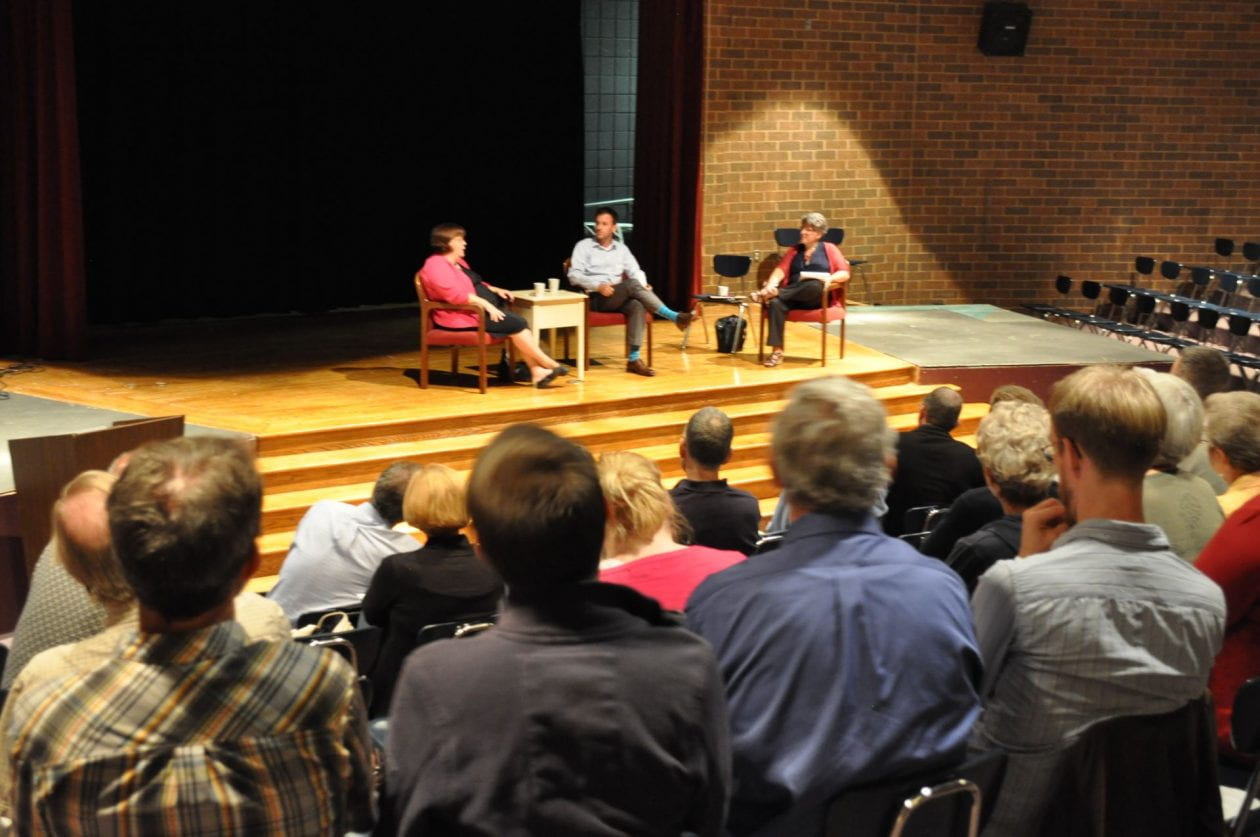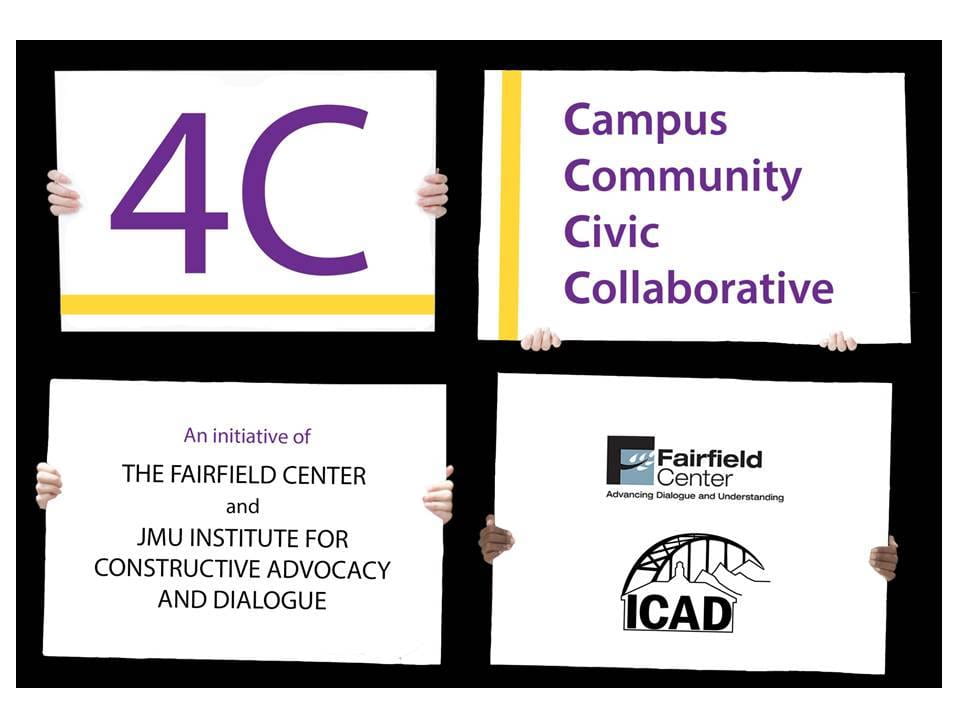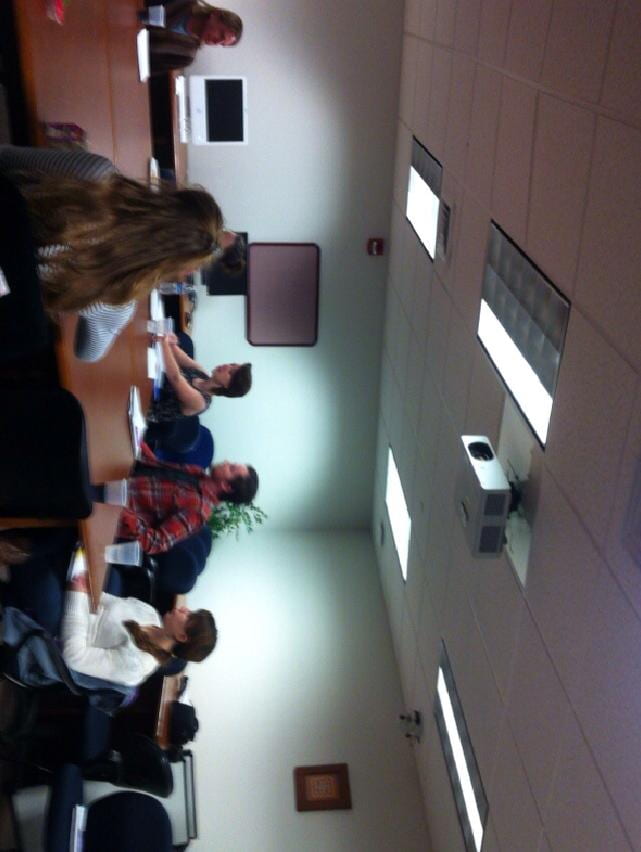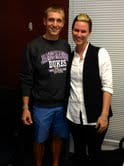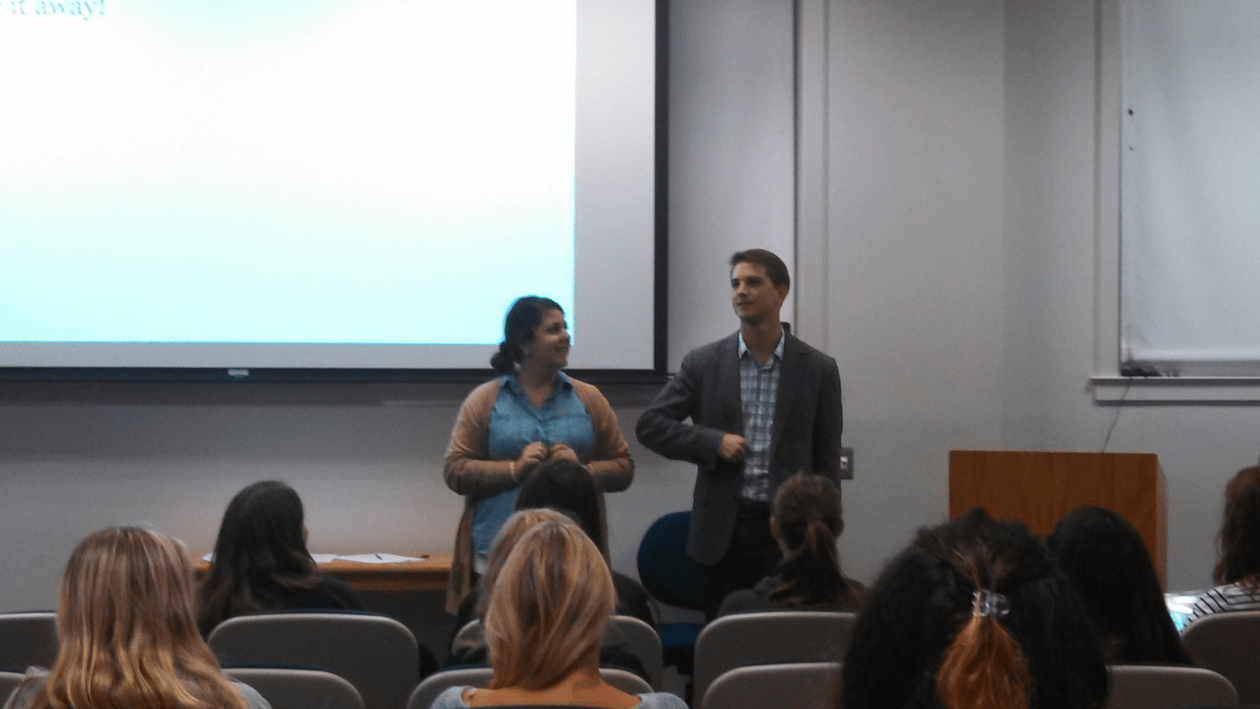By Matthew Boling (’18)
Dr. Michael Broderick, an assistant professor in JMU’s School of Communication Studies, uses monstrous, magical puppets to teach his students how to develop out-of-the box techniques to address complex social issues and challenges. Students create puppets to address such diverse topics as the similarities between art and science or the predator and prey in society.
But, as in real life, there are no directions or boundaries for this assignment. Broderick’s students are on their own from the moment they are divided into work groups until their final presentations at the end of the semester.
Before then, students spend weeks brainstorming how to articulate and give social issues understandable shape and form.

For example, one group brought the predator student debt to life. To express themselves as prey to student debt, students covered the puppets with JMU JAC Cards, tuition checks, textbooks and supplies, room and board, and meal plans.
This innovative approach to teaching SCOM 123, group presentations, is as effective as it is ingenious. But it’s not original with Broderick.
He first got the idea from an event in Athens, Ohio where artists are invited from across the country to construct similar puppets for a four-day parade leading into Halloween.
At first glance, the puppets may seem meaningless, but they prompt both critical and divergent thinking, helping students prepare for the real world.
Critical thinking is essential to successfully solve today’s workplace dilemmas. Divergent thinking is the creative aspect of this combination.
Made famous by Albert Einstein, divergent thinking involves taking a simple concept or object and using imagination to identify new and potential uses.
In Broderick’s class, much like the workplace, his students are given a project with no direction and must come up with a solution, as well as the rationale for their creation and its style, and meaning.
Student grades are based on a portfolio created throughout the entire semester.

The portfolio contains visual artifacts of everything during the semester: receipts from purchases, pictures taken during the process, sketches of the puppet, text messages within the group, emails, and anything else that was used during the creation of the project.
Broderick then he assesses the quality of the puppet, the inspiration and rationale for the group’s creation, and how well the team can justify their choices and meaning behind the puppet.
Since he does not teach an art class, the craftsmanship of the puppet is not important to Broderick. However, he can tell when a group fails to invest themselves in designing and creating the puppets—and grades accordingly.
Yes, Broderick’s method is abstract, ingenious, and enhances students’ critical thinking skills as they prepare for life after college.
And it starts with puppets.
Do you want to know more about Dr. Broderick’s class and puppet project? Please contact him at broderml@jmu.edu.
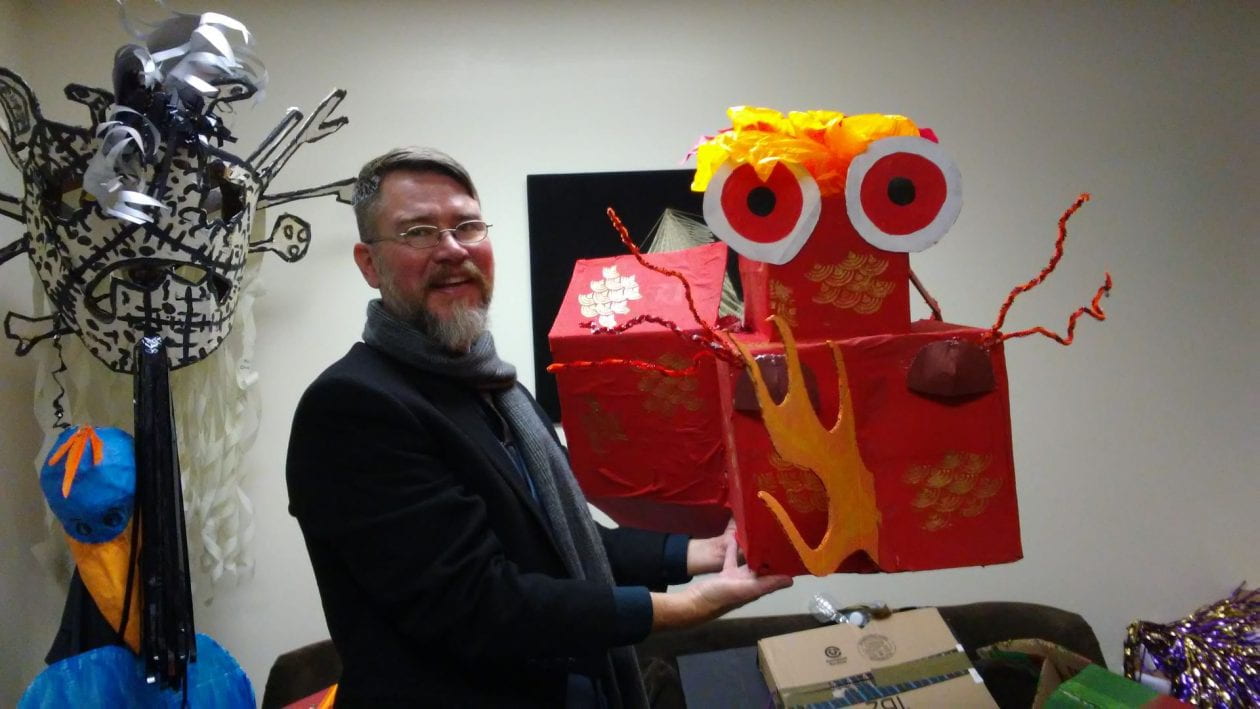


 Lindsey Harvell
Lindsey Harvell


